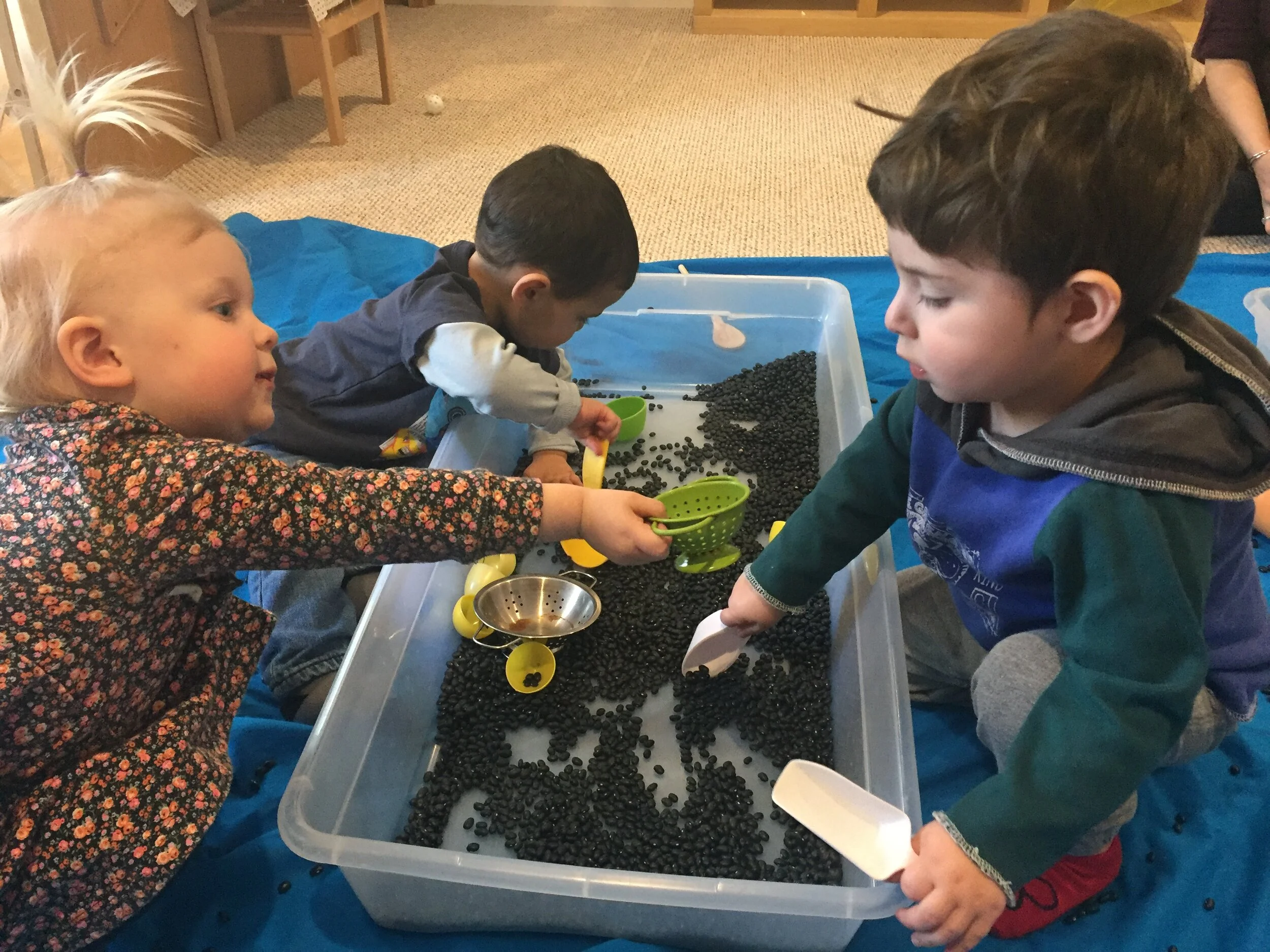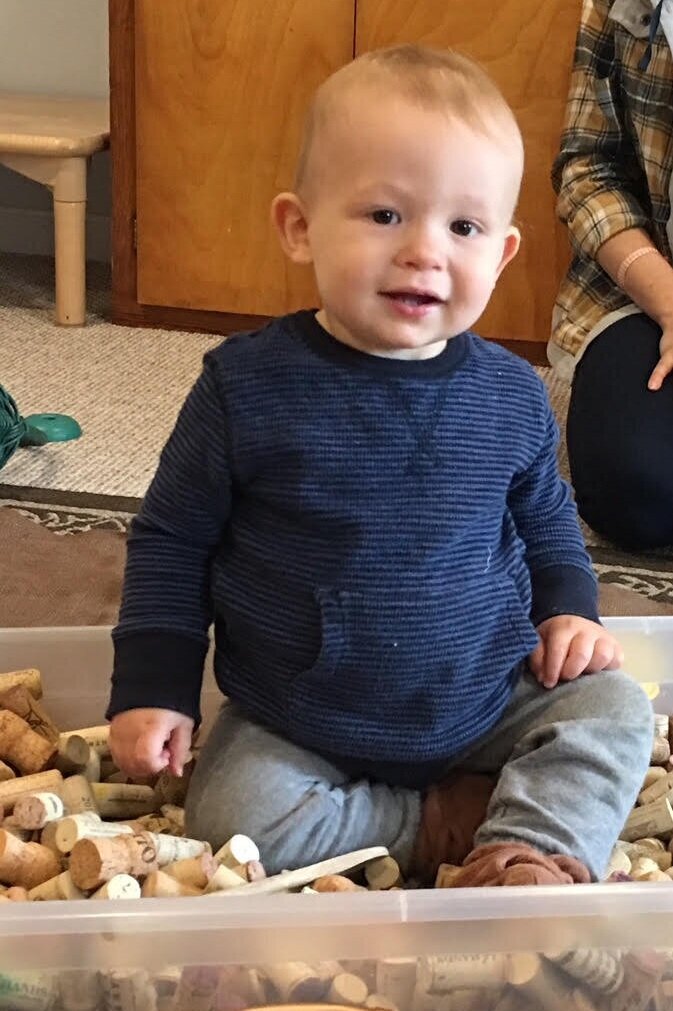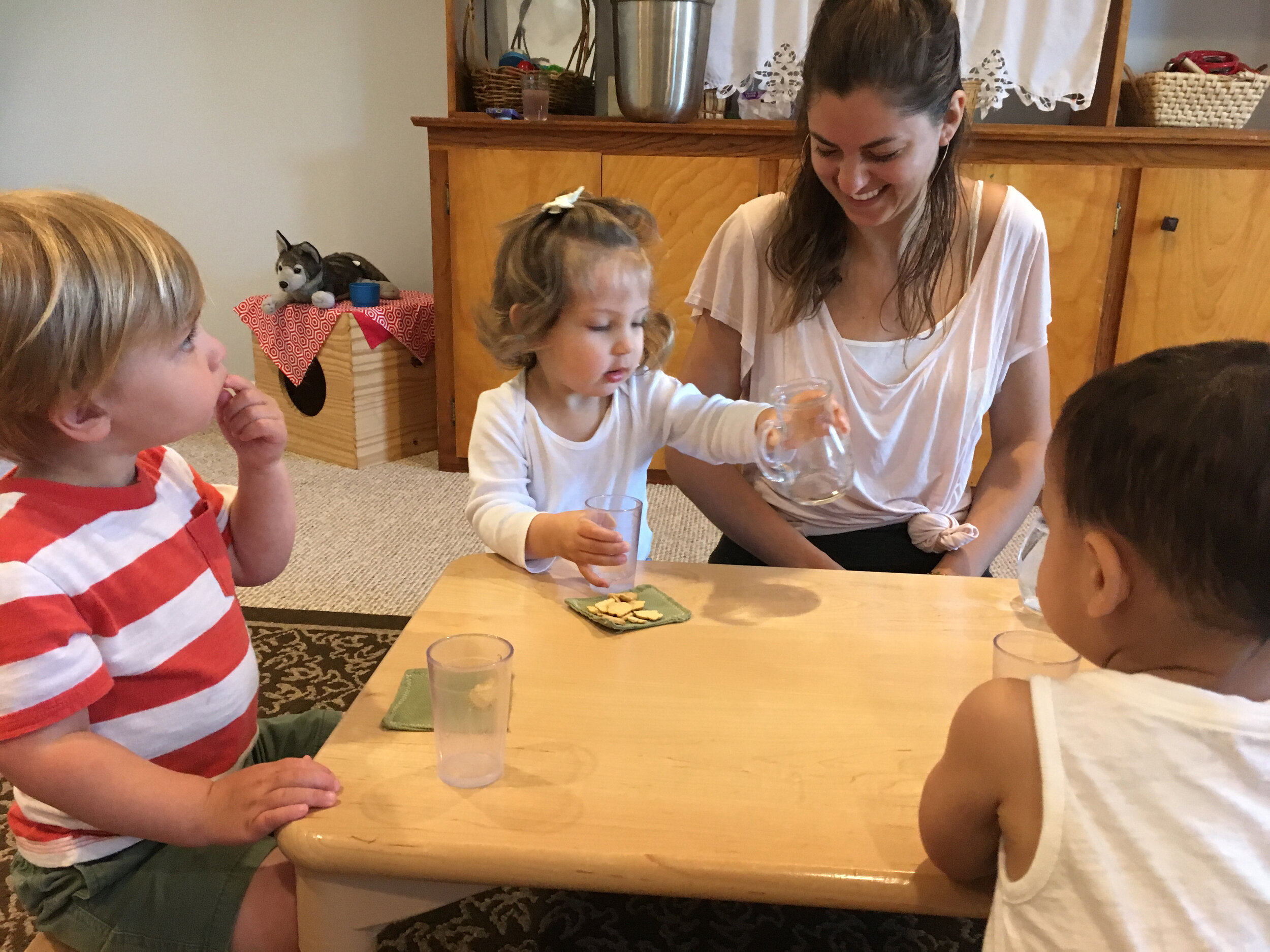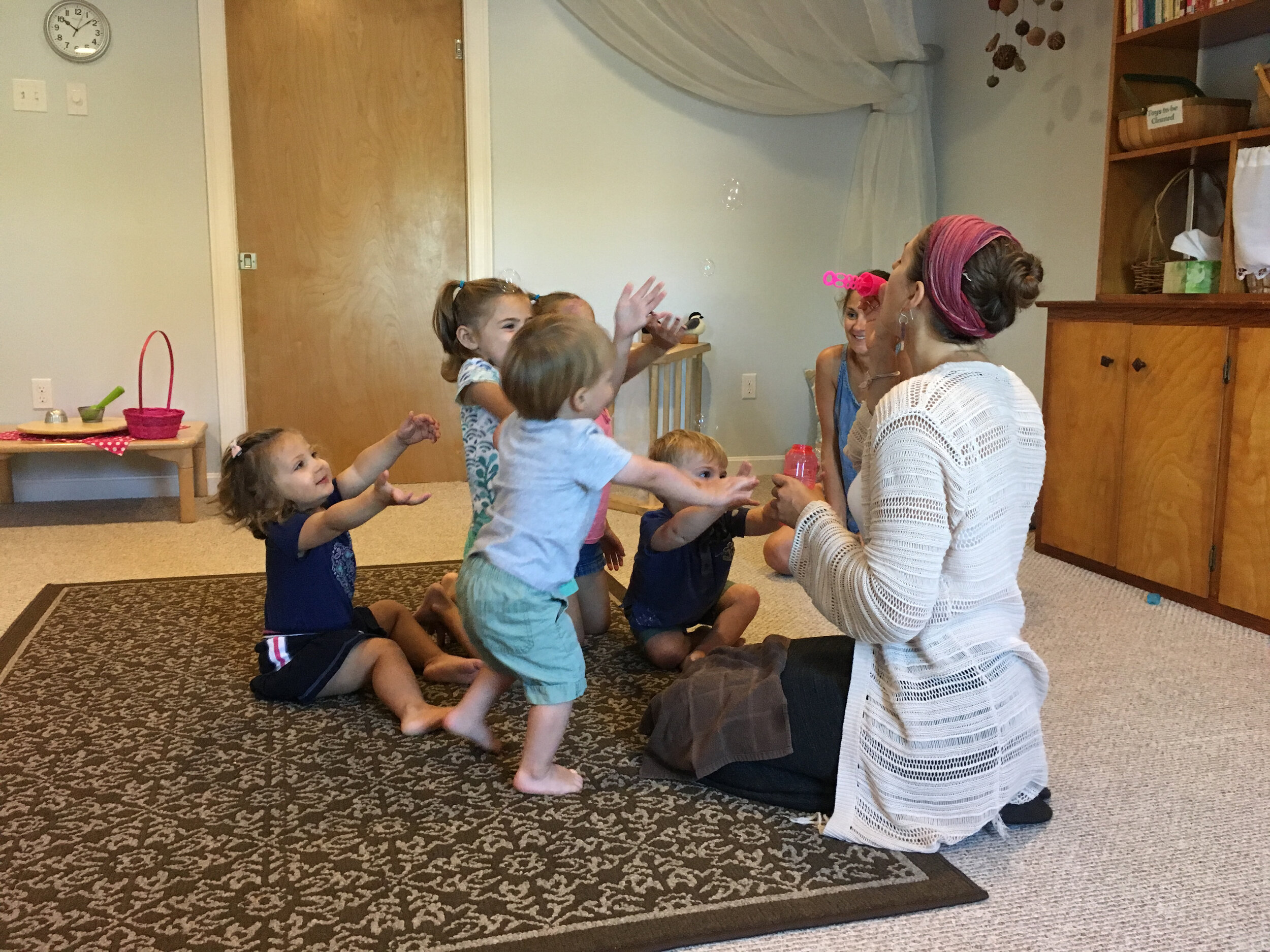How To Support Exponential Growth In Early Childhood - PART TWO: 18-24 months
A Progressive Age Series With a Sprinkle of Harmony Magic!
After February’s post looking closely at 12-18-month-olds, today we are focusing on the blooming abilities and interests of 18-24-month cuties.
The caregiving role for this age range continues to be about protecting our little ones while stepping back incrementally more to allow them the space to grow and discover independently. …To nurture their natural developmental bursts of cognitive and motor abilities. …To meet toddlers’ processing pace with calm, patience, and observation—staying tuned in, and intervening only when support is needed.
In this second post of our Exponential Growth series, we share our experience and observations of the crawling, toddling early years with a sprinkle of Harmony magic—and encourage simple ways for you to nurture your child through the incredible development of the first 24 months of life and beyond.
18- TO 24-MONTH LOVES
Rest & Routine. Your days with your growing toddler will still revolve around naptime—we can’t overemphasize that well-rested children (and parents!) are so much better-primed to engage with focus and joy—but typically by 18 months, your baby will likely transition from needing two naps a day to just one, around midday. Hooray for a little more freedom for Mom and Dad!
A predictable routine remains very grounding and calming for this age group. Continue simply, routinely layering in family mealtimes, space for independent play, stories, songs, snack breaks, and time to take in the wonder of the outdoors—it all adds up to the rhythm of a full day, rich with educational activities your child anticipates and relishes. What adults find repetitive, toddlers adore! So laugh and think of us as you sing the same songs and read the same stories over and over and over…
ADVANCED MOVING! Toddlers at this age delight in their ever-expanding gross motor abilities—mastery of walking, learning to run, testing new limits with balance, and climbing (everything). Aim to get outside as much as possible, and let your toddler explore! A good rule of thumb: your children are generally safe when they can maneuver into situations independently—so avoid hoisting them into locations they’re likely not ready for. Let them scramble over a little snowbank, low rocks, or a small slide and—as much as possible—fight the parental temptation to constantly warn, “be careful!” Stay close, but try to observe more than comment…you may just be pleasantly surprised at how truly capable your child is when left to play independently. The sooner a child has the chance to practice and build a skill, the sooner he or she will master it…and the sooner you’ll get to sit down!
Sensory Learning. The parade of sensory learning continues for this group of toddlers! If you set out a large, low under-bed bin filled with your choice of rice, dried beans, sand, foamy soap, water, or even snow (with measuring cups, spoons, and/or ladles tucked inside) you’ll likely observe that scooping and dumping are very popular. For children with oral tendencies, keep a close eye on whether that scooping is heading toward little mouths, and consider your choice of sensory items accordingly. Pro tip: spread an old sheet, blanket, tarp, or waterproof tablecloth beneath the bin on the floor, and if your child is inclined for full-body sensory experiences, you may want to strip him to his diaper. Oh—and have a magazine handy…when you discover your child’s favorite sensory combinations, you may just find yourself with 5 to 45 minutes of glorious time on your hands!
Independence. “I can do it MYSELF!” They may not say it yet, but they’re thinking it! As busy parents, it can be so easy for us to shift into autopilot, and continue doing things for our toddlers simply out of habit. With a little conscious effort not to fall into that trap, you’ll be amazed at what your tiny human is capable of!
At mealtime, model self-feeding with a little utensil—spear a couple of peas on a toddler fork, or drop them into a tiny spoon, and pop it in your mouth as those curious eyes watch you. Repeat the process and pass the mini-utensil to your child: “Now you try!” The next time, let him or her test the entire process. Expect clumsiness, especially at first, but you’re now on the road to practicing those fine motor skills—and freeing yourself up from the endless duty of spoon-feeding your child!
Ready for your mind to be blown? Place a tiny cup without a lid on your child’s high chair tray, pour a tiny amount of water into it—maybe half an inch high, and suggest that he take a drink. Once he shows you he’s capable of that, put the same amount of water into a little pitcher, and suggest that he pour it into the cup for himself. For most little ones, there will be spills, but your child will be so thrilled inside to be given this real-world responsibility, and to tackle this challenge. You can incrementally increase the amount of water as your child is ready for it.
Show your tiny toddlers you respect them, and expect that they can carry out big-person, independent tasks. Ask them to respond to simple, single-step directions: “Please bring me your coat…Put this in the trash, please…Can you bring your cup to the kitchen?...”
Resist the urge to intervene and be patient as your little one struggles toward mastery of these basic independence-building skills. Practice makes perfect! Our toddlers at this age still feel like babies to us, but they are so capable if we just give them the chance!
Friends & Siblings. When your toddler is with siblings or little friends during this age range, you’ll likely notice a slightly increasing awareness of and curiosity toward peers. From this stage through 2.5 to 3 years, children engage in parallel play—side-by-side, as opposed to playing together and working toward a shared goal. Try to reserve commentary as you sit back and let the children play. As parents, we tend to jump right in or fill silence, but simply observing, and intervening only when necessary further develops your child’s independence and confidence.
18- TO 24-MONTH CHALLENGES
Boundaries. Emboldened by exploding motor skills, toddlers continually push the limits of acceptable and safe physical behavior with friends, siblings, and their environment. Through this stage, shadowing your child—quietly following and redirecting as needed—is key. Just as in the 12-18-month stage, continue offering firm, simple boundaries, and gently moving an item, your child’s hand, or even your child, as necessary. Remember to resist the urge to react dramatically or over-explain—if not, you will likely find your clever little scientist repeating the behavior hoping to receive your repeat performance. The more boring your reaction, the better—calm, predictable, clear boundaries remain your best ally in strengthening those little neural pathways toward appropriate behavior.
Sharing. It’s still not in the developmental wheelhouse of a toddler of this age—and that is still perfectly fine. Remember that when young children play for extended periods with simple materials, they lay the groundwork for concentration and attention span skills. Therefore, though a sibling may express interest in what your child is playing with, we encourage you to protect your toddler’s focus, and calmly offer the sibling an alternative option, saying, “You may have a turn when Lucy is done.” Continue modeling basic manners like please and thank you to your toddler.
Sportscasting—saying what you see—is another great tool to help children understand social exchanges at this age. “Michael likes the ball you are using,” is often enough to defuse confusing moments with siblings or new friends. We’ve said it before and we’ll say it again… Across the early years, children’s gravitation to play is so deeply beneficial to learning—you can see how it helps toddlers understand every facet of the functioning of the world around us. From the challenges of boundary-setting to the joys of developmental achievement, your days with your toddler will likely feel so much more enjoyable and manageable when coupled with calm, patient observation and intervention only as needed…and your toddler will be primed for independence that much sooner!
We’d love to see any Harmony-inspired moments you capture along your child’s early years journey. Tag us (@HarmonyNLC) on Facebook and Instagram, and use the hashtags #HarmonyNaturalLearningCenter #TheHarmonyApproach #HarmonyNLC
______________________________
Interested in introducing more of The Harmony Approach to your preschooler at home? Check out Harmony at Home today (FREE activities available).
Now accepting Multi-Track Kindergarten applications for the coming school year—a great option for an upper preschooler too! Schedule Your Tour today!











